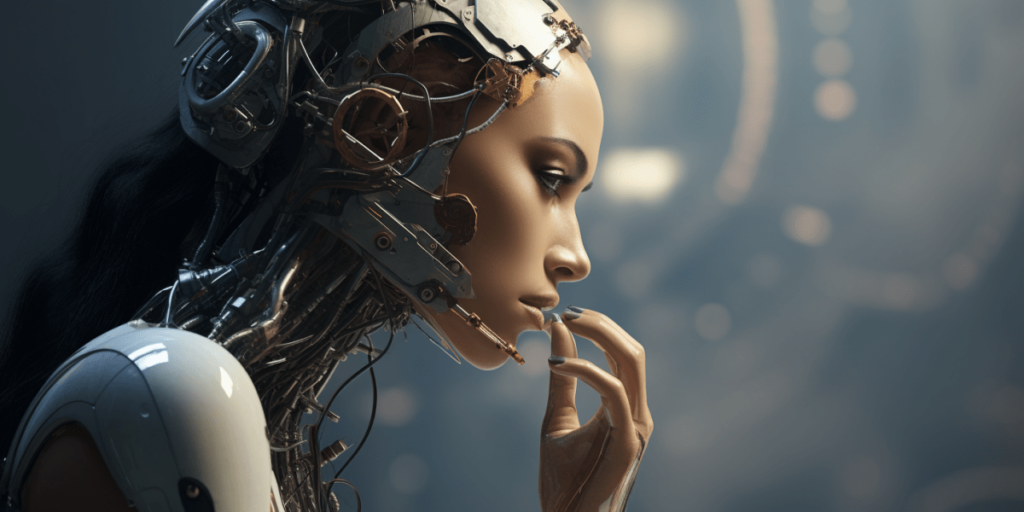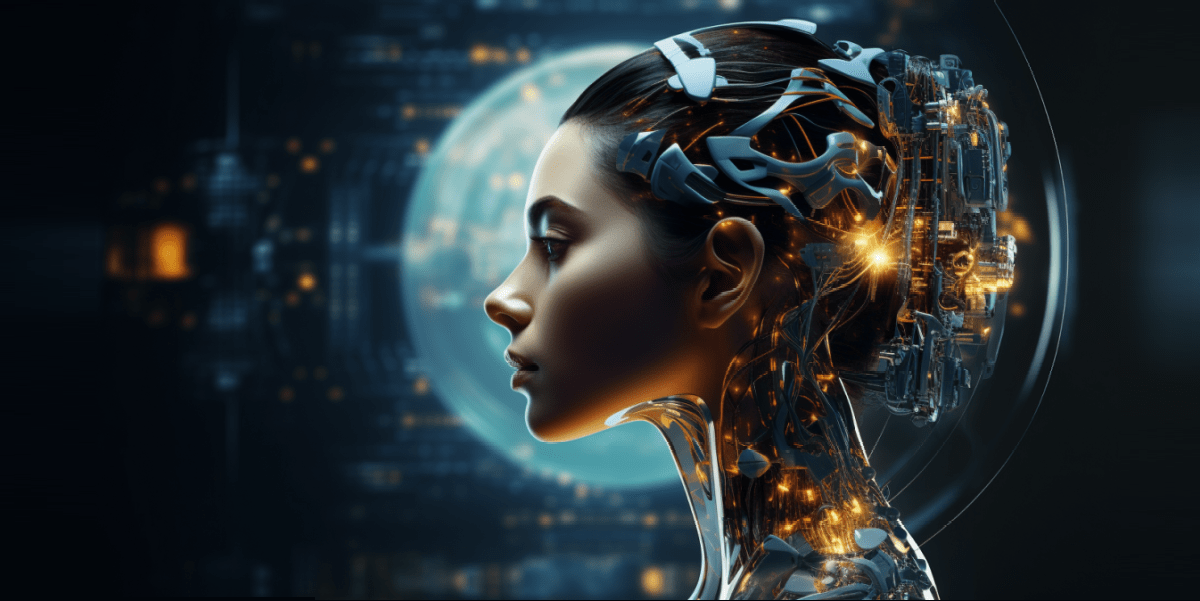Artificial intelligence (AI) is a branch of computer science that involves programming machines to think like human brains. AI has great potential when applied to various fields such as finance, health care, transportation, and engineering.
By 2030, AI could contribute up to $15.7 trillion to the global economy, which is more than China and India’s combined output today, according to PricewaterhouseCoopers’ Global Artificial Intelligence Study.
AI has evolved from scientific advancement to an engineering tool. Latest innovations in digital technology require engineers from various domains to learn and integrate AI tools into their engineering designs. AI can help engineers solve complex problems, optimize processes, enhance creativity, and improve productivity.
Table of Contents
How AI Impacts Engineering
AI can impact engineering in many ways, such as:
- Designing and testing: AI can help engineers design and test products, systems, and structures faster and more accurately. For example, AI can generate multiple design options based on predefined criteria, simulate different scenarios and conditions, and evaluate the performance and feasibility of each option. AI can also help engineers detect and correct errors, flaws, or defects in the design or testing phase.
- Manufacturing and maintenance: AI can help engineers automate and streamline manufacturing and maintenance processes, reduce costs, increase efficiency, and ensure quality and safety. For example, AI can control smart machines and robots that can perform tasks such as assembling, welding, painting, inspecting, or repairing. AI can also monitor the condition and performance of machines and equipment, predict failures or malfunctions, and schedule preventive or corrective actions.
- Data analysis and decision making: AI can help engineers collect, process, analyse, and interpret large amounts of data from various sources, such as sensors, cameras, databases, or the internet. AI can provide insights and recommendations that can help engineers make better decisions based on data-driven evidence. For example, AI can analyse customer feedback, market trends, or competitor strategies, and suggest ways to improve customer satisfaction, product quality, or market share.
How AI Changes Project Development
AI can also change the way engineers approach project development in the following ways:
- Collaboration: AI can facilitate collaboration among engineers from different disciplines, backgrounds, or locations. AI can enable seamless communication, information sharing, and coordination among team members using platforms such as cloud computing or blockchain. AI can also help engineers collaborate with other stakeholders such as customers, suppliers, regulators, or investors by providing transparent and trustworthy information.
- Innovation: AI can foster innovation among engineers by stimulating their creativity, curiosity, and learning abilities. AI can inspire engineers to explore new possibilities, challenge existing assumptions, or generate novel solutions. AI can also help engineers learn new skills or knowledge by providing personalised feedback or guidance.
- Ethics: AI can raise ethical issues among engineers by posing questions about the social, environmental, or moral implications of their work. Engineers need to consider the impact of their projects on society at large, such as the potential benefits or risks of using AI for certain purposes or applications. Engineers also need to adhere to ethical principles and standards when developing or using AI systems.
How AI Creates New Industries
AI not only impacts existing industries, but also creates new ones. AI enables the development of new products, services, and solutions that can address unmet needs, create new markets, or disrupt existing ones. Some of the new industries that will be created or transformed due to AI are:
- Energy: AI will help optimise operations, increase efficiency and reduce environmental impact. For example, AI can help manage renewable energy sources, such as solar and wind, by forecasting demand and supply, adjusting output and storage, and integrating with smart grids. AI can also help monitor and control energy consumption, emissions, and waste in buildings, factories, and cities.
- Healthcare: AI will improve medical testing, diagnosis, delivery and research. For example, AI can help analyse medical images, such as X-rays or MRI scans, to detect diseases or abnormalities. AI can also help provide personalised treatment plans, recommendations, or reminders to patients based on their health data and preferences. AI can also help accelerate drug discovery, development, and testing by simulating molecular interactions and clinical trials.
- Aerospace: AI will enable autonomous flight, navigation and maintenance. For example, AI can help pilot drones or aircrafts that can perform tasks such as surveillance, delivery, or rescue. AI can also help optimise flight routes, schedules, and fuel consumption based on weather conditions, traffic patterns, and customer demand. AI can also help detect and prevent faults or failures in aerospace systems or components.
- Supply Chain: AI will enhance logistics, inventory and demand forecasting. For example, AI can help track and manage the movement of goods and materials across the supply chain using sensors, RFID tags, or GPS. AI can also help predict customer demand, optimise inventory levels, and reduce waste or spoilage. AI can also help coordinate and automate delivery processes using robots or self-driving vehicles.
- Construction: AI will assist in design, planning and safety. For example, AI can help generate optimal design solutions based on customer requirements, site conditions, and budget constraints. AI can also help plan and schedule construction activities, resources, and materials using historical data and real-time information. AI can also help monitor and ensure the safety of workers, equipment, and structures using cameras or sensors.
- Education: AI will personalise learning, assessment and feedback. For example, AI can help tailor learning content, pace, and style to each student’s needs, goals, and preferences. AI can also help assess student progress and performance using quizzes or tests that adapt to their level of difficulty. AI can also help provide instant feedback or guidance to students or teachers using natural language processing or chatbots.
These are just some examples of how AI will create new industries in the future. There are many more possibilities that are yet to be explored or discovered. As a passionate systems engineer who is excited to talk about anything systems engineering, and I believe that these new industries will offer many opportunities and challenges for systems engineers to apply their skills and knowledge in designing, developing, and managing complex and dynamic systems that involve AI and other technologies.
As a passionate systems engineer who is excited to talk about anything systems engineering,
I believe that in the future, systems engineering will be across every market at a scale that one systems engineer can never fully be across alone. Future systems engineers will spend their time fine tuning and validating AI models owned by both commercial entities and community pools. These will grow exponentially and we will lift the bar on expectations each time, to achieve even more scale. In all of this, we will always have a role to play. Call me optimistic please!
The Future of Engineering with AI
The future of engineering with AI is bright and exciting. Engineers will be able to leverage the power of AI to create innovative products and services that can improve the quality of life for people around the world. Engineers will also be able to enhance their own capabilities and performance by using AI as a partner or assistant.
However, the future of engineering with AI also poses some challenges and uncertainties. Engineers will need to adapt to the changing demands and expectations of their profession in the age of AI. Engineers will need to acquire new skills or competencies that are relevant for working with or alongside AI systems. Engineers will also need to balance the opportunities and responsibilities that come with using AI for engineering purposes.
In conclusion, AI is a game changer for engineering and project development. It offers many advantages and possibilities for engineers to solve problems, optimise processes, enhance creativity, and improve productivity. However, AI also requires engineers to learn, collaborate, innovate, and act ethically in the face of new challenges and uncertainties.

If you enjoyed this blog post, please share it with your friends and colleagues who are interested in AI and engineering. You can also subscribe to my blog to get more updates on the latest trends and topics in systems engineering. Thank you for reading!
Further reading:
- AI’s Impact on Key Sectors in 2022
- Industries Set to Benefit from AI in 2022 and Beyond
- AI’s Role in Shaping New Industries
- Examples of AI Implementation in Various Industries
- Emerging Industries to Invest in for 2021 and Beyond







